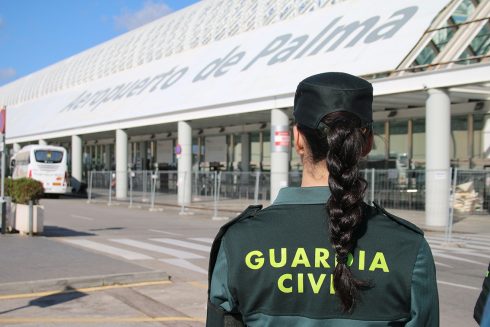THE protestors taking to the streets across Spain over the cost of housing will feel vindicated by the latest data from Idealista.
Figures for the second trimester of 2024 show that long-term rental properties are down 17% across Spain – but they have been vanishing at a spectacular rate in the most desirable cities.
In crisis-hit Barcelona, long-term rentals have plummeted by nearly half (45%) and in Madrid by over a fifth (22%).
Interestingly, in Malaga – where the protests have been at their most vociferous – the long-term rental stock has actually increased by 4%.

But the downward trend continues across Spain’s other desirable locations. In San Sebastian the figure is down 32%, Sevilla 27%, and Bilbo 22%.
In Alicante and Valencia the drop is more modest, at 8% and 6% respectively.
Landlords have been fleeing from the long-term market in droves over the past year.
The figures show that they now prefer the relatively less risky option of seasonal lets, which have surged by 55% and now account for 13% of Spain’s total rental stock.
In Barcelona, seasonal contracts have shot up 42%, followed by San Sebastián at 34%.
Other cities with significant seasonal rental markets include Badajoz (21%), Girona (20%), Cádiz (19%), Madrid (16%), and Valencia (15%).
Over the past year, 21 provincial capitals have more than doubled their seasonal rental offerings.
Seasonal lets, defined as housing set for a specific period – usually less than one year – have been exempted from 2023’s Housing Law.
This means that they are not affected by limitations on rent hikes, or contract extensions or the possible imposition of rent controls in ‘stressed areas’.
Idealista described the law, which imposed a raft of punishing new measures on landlords, as ‘destroying the market.’
“The measures adopted in terms of renting have transferred the offer from permanent renting to seasonal renting, a perfectly legal formula but one that makes access to housing even more difficult for the most disadvantaged individuals and families,” the housing portal said.
“It is striking that despite all the empirical evidence, the authorities continue to legislate against landlords (as seems likely to happen in the coming months with seasonal rentals) instead of seeking consensus and incentives to organically increase the housing stock.
“All the measures approved so far (and those expected to be approved in the short term) will continue to harm families who need rented housing, increasing prices and the anxiety of families who see the harshness of competition with dozens of interested parties.”
However, it does appear that policy makers in Madrid are aware of the problem, with two new rules to crack down on short term property rentals under consideration.
Landlords will have to justify the reasons for limiting the contract, in order to ‘safe short term rentals for those that really need it,’ like seasonal workers and students.
According to the Minister for Housing, Isabel Rodriguez, this ‘justification’ is necessary to ‘avoid fraud’.
The second measure is the creation of a new government platform online for registered landlords to advertise short term rentals, verified using work contracts, study forms or equivalent documents.
Each of these rentals will be given a unique code in order to track and control rentals.
The measures are a development of recent EU legislation and are expected to be in place by the end of 2025.
They were presented by Rodriguez following a meeting with Spain’s working group on short term rentals earlier this month.
The group, made up of ministers, estate agents, unions and the general public, was established to find a solution to landlords who abuse short term contracts, as well as the issue of tourist lets.
Click here to read more Property News from The Olive Press.









There is a simple answer to this. It follows the economic rules of supply and demand. The country is riddled with incompleted housing which is a disgrace. Solve two problems with one solution: make it easier to complete those properties and that will start to even up the supply side. That is already a stated objective of the Socialist government
You can not blame landlords for seeking higher returns from the short let market! That is also economics!
Yes ,but it is also greed,that is not a positive quality,life is about more than just making money. We all benefit when society is more considerate to those who are not wealthy.
Completely in agreement with you. The housing crisis started long before the latest housing laws. The justification for the increases is always “the markets” as more and more people jump on the bandwagon of buying properties to let and not to live. especially amongst foreign buyers. In the old days it was called speculation and frowned on. Now everything is justified if it makes money, irrespective of the consecuences.
You are correct, Jessica. The way to achieve that honourable objective is not to criminalise landlords. Rather look at this an an opportunity to help those who have been priced out of the market by employing the large stock of unfinished properties that litter the country. Most of these are casualties of the financial crises in 2007/08, and almost certainly the banks who granted mortgages on these properties will by now have made provisions inline with the Bank of Spain’s directives. This is now a great opportunity for them to illustrate to the public that they care.
By the way, short term rentals involve substantially higher costs for landlords than long term.so this situation might just be a passing fad.